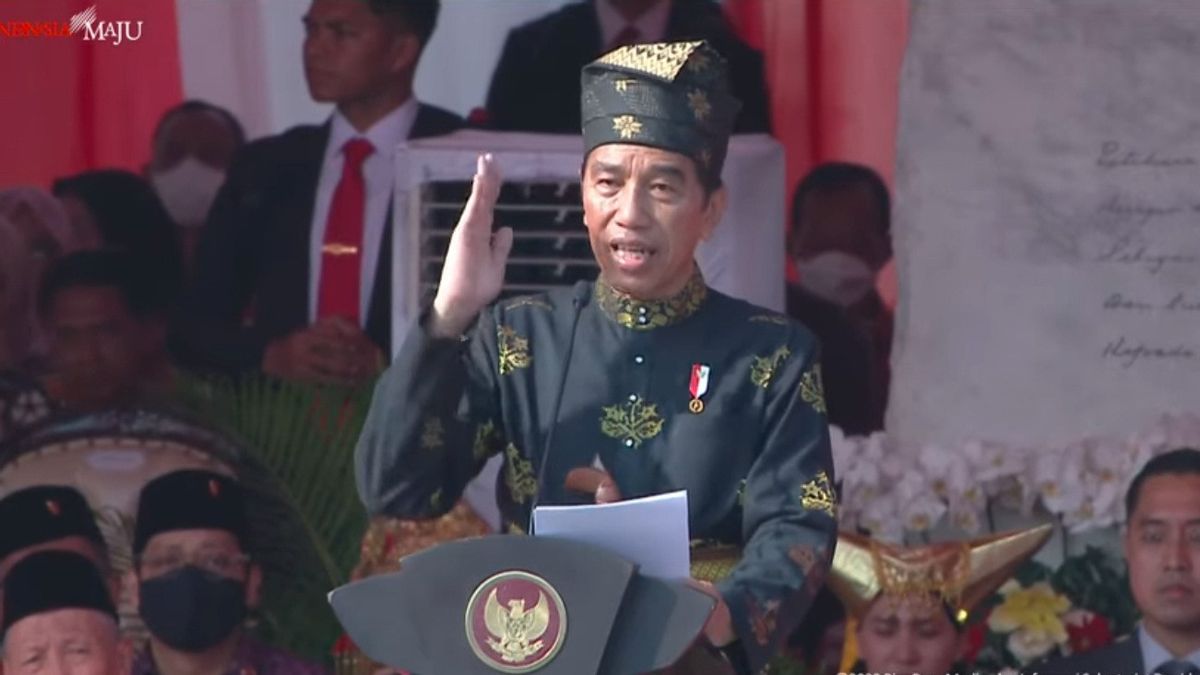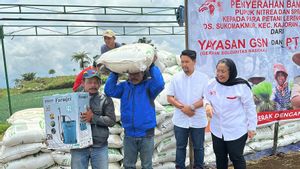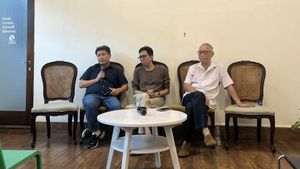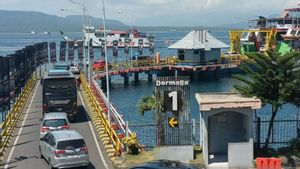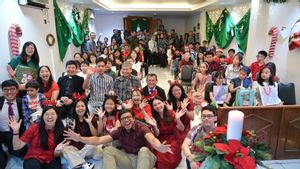JAKARTA - 'Tolerance, unity, and mutual cooperation are the keys to building a strong nation. Therefore, I invite all of us to reject extremism, reject identity politicization, reject religious politicization.
Let us welcome the 2024 election democracy party with maturity, with joy, by upholding the values of Pancasila, fighting for a just, prosperous, and authoritative forward Indonesia in the eyes of the world.
President Jokowi reiterated this when he gave a speech at the commemoration of the anniversary of the Birthday of Pancasila in the south court of Monas, Central Jakarta on June 1, 2023.
A very clear message. Emphasize the spirit of unity and integrity. Political identity and politicization of religion are dangerous things that can divide the nation. Look at the events that occurred in the 2017 DKI Pilkada.
Identity sentiment that produces the term cebong-kampret continues until the 2019 election. Even though the party that was originally opposition had joined the government, the polarization did not also disappear, but only transformed into tadpoles.
The current condition is like a dried grass that is exposed to the sun, it can be burned at any time. So, it has become a necessity for the President to always emphasize the message to his people.
In a coordination meeting of the Regional Leadership Communication Forum in Sentul, Bogor Regency, West Java in January, Jokowi also gave instructions to regional heads to maintain political and security stability ahead of the 2024 General Election. Do not let people become victims of politics, especially identity politics.
Because, the impact is dangerous. Identity politics according to Research Center for Religious and Democracy Studies (Pusad) Paramadina University, Husni Mubarok, can develop into hate speech to incite hate. In the end, it has the potential to lead to dehumanization, which legitimizes a person doing violence.
"If there are indications of dehumanization or inhumane conditions based on identity, it should be dealt with. Especially during the election period, identities such as flammable grass. This means that it is very easy to use to attack other people, one of which is through hate speech," said Husni in a discussion held at Paramadina University last March as reported by Kompas Daily.
Currently, polarization has not been seen too much. Either October-November when the KPU has opened the registration of presidential and vice presidential candidates.
"We must remain vigilant," added LP3S Director of the Center for Media and Democracy Studies Wijayanto at the same event.
Not without basis, this concern is clearly indicated by the results of the latest survey by the Setara Institute for Democracy and Peace which was released on 17 May. The number of active intolerant students in high-level and equivalent schools in five Indonesian cities has increased.
In a survey seven years ago, there were 2.4 percent of students who were intolerant of being active, while 0.3 percent were exposed. Now it is 5.6 percent, while those exposed reached 0.6 percent.
The survey also showed that as many as 99.3 percent of students received differences of belief, 99.6 percent accepted racial and ethnic differences, 98.5 percent accepted religious differences and beliefs, and 93.8 percent accepted gender equality in the election of the chairman of the School Intra Student Organization (OSIS).
However, when asked about the response to religious insults, about 20.2 percent of students admitted that they could not refrain from committing violence.
About 33 percent of students agreed to defend religion, including having to die in defending religion.
Another surprising finding was that 83.3 percent considered Pancasila not a permanent state ideology, and can be replaced.
The Executive Director of the Setara Institute, Halili Hasan assessed that there are five factors that cumulatively affect the level of student tolerance in Indonesia, namely the influence of parents, religious teachers, social friends, extracurricular organizations that are followed, and religious literature.
"So, prevention needs to be improved against these five factors. Other alternatives to programs increase tolerance among teachers because they will be very decisive," said Halili.
Special Staff to the Chairperson of the Pancasila Ideology Development Board (BPIP), Antonius Benny Susetyo, also did not deny that the post-reforming Pancasila was only seen as a ceremonial theory and rhetoric. It is no longer considered a philosophy and the basis for national and state life.
Sadly, Pancasila is often considered only a tool to perpetuate power. This ultimately made Pancasila segregated from people's lives.
"BPIP, in this case, has been able to return Pancasila back to being a teaching material from PAUD to college, which had disappeared after 1998," Benny told VOI on June 1, 2023.
However, that is not enough. Pancasila at this time must also be returned as the main flow not in a doctoral way but with a real example that is summarized in people's lives and public policies.
Pancasila should not only be theoretical, but also be a living and moving ideology in society. The ideology is also reflected in policy policies produced by the government.
"Pancasila must be the basis ofpathos (employment and sense of togetherness),ethos (moving and working), andlogos (logics and thinking) for all levels in Indonesia in the life of the nation and state," added the man who is also known as one of the founders of the Setara Institute.
The English, Chinese, Japanese, Arabic, and French versions are automatically generated by the AI. So there may still be inaccuracies in translating, please always see Indonesian as our main language. (system supported by DigitalSiber.id)
